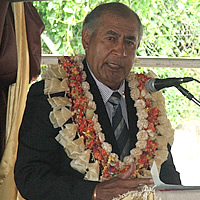
No strikes, job actions, sick outs, slowdowns or other financially or operationally harmful activities shall be permitted at any time for any reason for designated corporations under the new Essential National Industries Employment Decree.
These actions are prohibited in connection with a union’s efforts to obtain registration as a representative of a Bargaining Unit, a union’s efforts to influence the outcome of collective bargaining, and disputes over the interpretation or application of any collective agreements.
The decree states that if the parties have not agreed upon a new or successor collective agreement based on the period stated, the Bargaining Unit through a secret ballot verified by the Minister may go on strike or the employer may implement a lockout however a 28 days’ notice has to be given to the Minister and prior written approval needs to be obtained by the Minister.
The new Essential National Industries Employment Decree states that given the nature of their employment, flight duty restrictions and duty period scheduling, no pilot, cabin crew, or engineer employed or engaged in any airline industry shall be eligible for overtime pay, unless otherwise agreed by the employer and the representative.
It further states that no person employed in any “designated corporation” that operates on a fulltime 7 days a week or 24 hours a day shall, unless otherwise mutually agreed upon by the employer and the representative, be entitled to any overtime pay for work performed on Saturdays, Sundays or public holidays.
There shall be no requirement for an employer under the decree to deduct union fees from a workers’ salary or wages unless agreed otherwise by the employer.
The decree further states that the Wages Council shall have no jurisdiction over any “designated corporation” or essential national industry, and any order, determination or regulations of the Wages Council shall not apply to “designated corporation” or essential national industry.
President, Ratu Epeli Nailatikau has gazetted the Essential National Industries Employment Decree and it is stated that the purpose of the decree is to ensure the viability and sustainability of certain industries that are essential to the economy.
The decree has termed designated corporations or companies which operate in an essential national industry and these companies will be designated by the Minister.
An essential industry is also termed as those which the government has a majority and essential interest in.
It is also stated that upon commencement of the decree, all members, office bearers, officers and executives of the union within a designated corporation or company must be employees of the designated company.
Any union registered which represents workers employed by the designated corporations must re-register as a representative.
The Essential National Industries Employment Decree states that any person or body or any union representative who fails to comply shall be guilty of an offence, and shall be liable upon conviction to a fine not exceeding $50,000 or five years imprisonment or both, and in the case of a union to a fine not exceeding $100,000.
It is also stated that upon commencement of the decree, all existing collective agreements will only be valid for a period of 60 days while new or replacement collective agreements are negotiated.
It further states that all existing collective agreements shall be null and void and no longer binding between the parties.
If no new collective agreement is in place, then the designated corporation may implement new terms and conditions of employment through a new collective agreement or individual contracts.
If an employer under the Essential National Industries Employment Decree has suffered operating losses for two consecutive years, it shall have the immediate right to re-negotiate all its existing collective agreements.
Story by: Vijay Narayan
Stay tuned for the latest news on our radio stations

